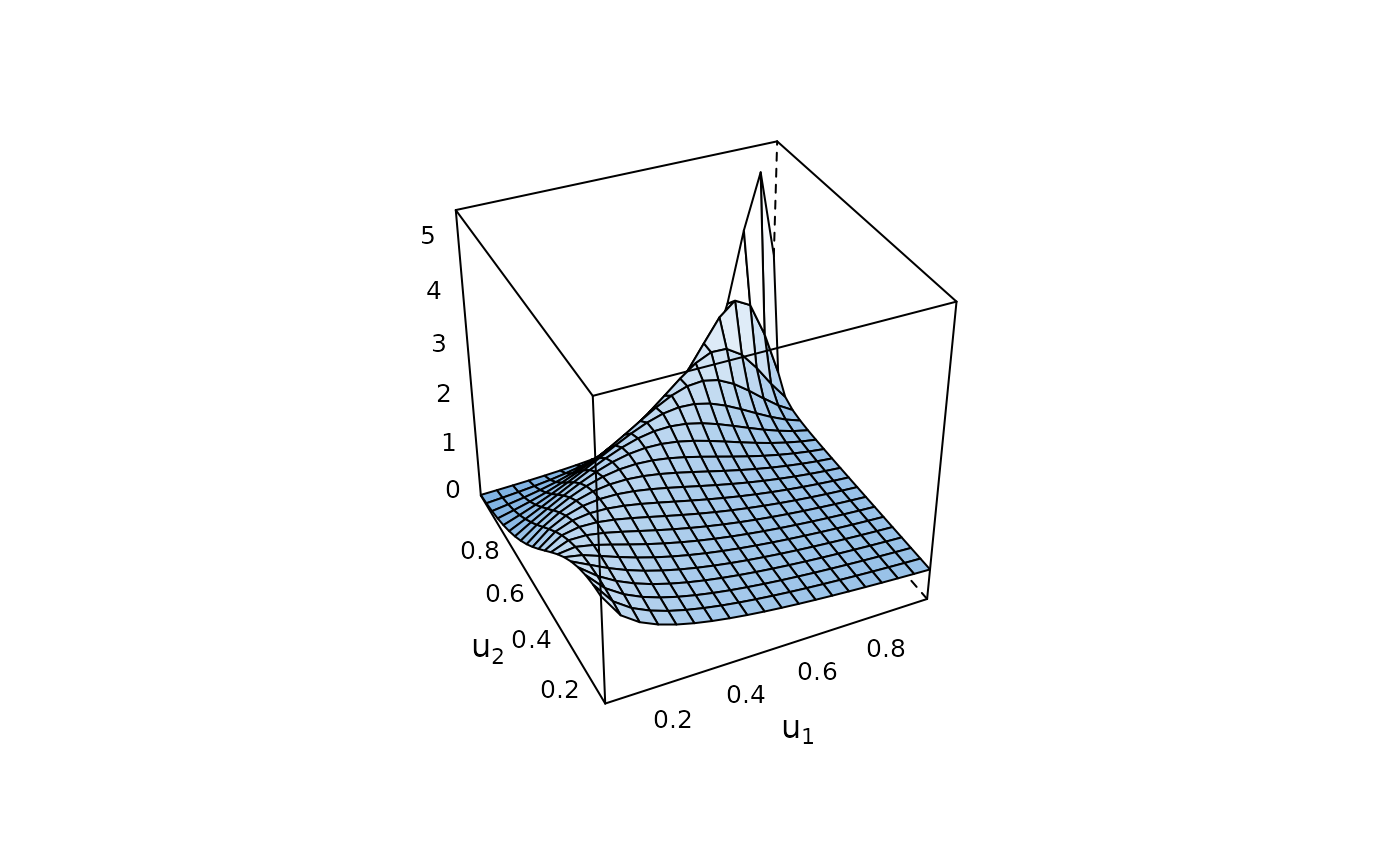There are several options for plotting BiCop objects. The density of a
bivariate copula density can be visualized as surface/perspective or contour
plot. Optionally, the density can be coupled with standard normal margins
(default for contour plots). Furthermore, a lambda-plot is available (cf.,
BiCopLambda()).
Arguments
- x
BiCop object.- type
plot type; either
"surface","contour", or"lambda"(partial matching is activated); the latter is only implemented for a few families (c.f.,BiCopLambda()).- margins
only relevant for types
"contour"and"surface"; options are:"unif"for the original copula density,"norm"for the transformed density with standard normal margins,"exp"with standard exponential margins, and"flexp"with flipped exponential margins. Default is"norm"fortype = "contour", and"unif"fortype = "surface".- size
integer; only relevant for types
"contour"and"surface"; the plot is based on values on a \(size x size\) grid; default is 100 fortype = "contour", and 25 fortype = "surface".- ...
optional arguments passed to
contour()orlattice::wireframe().


